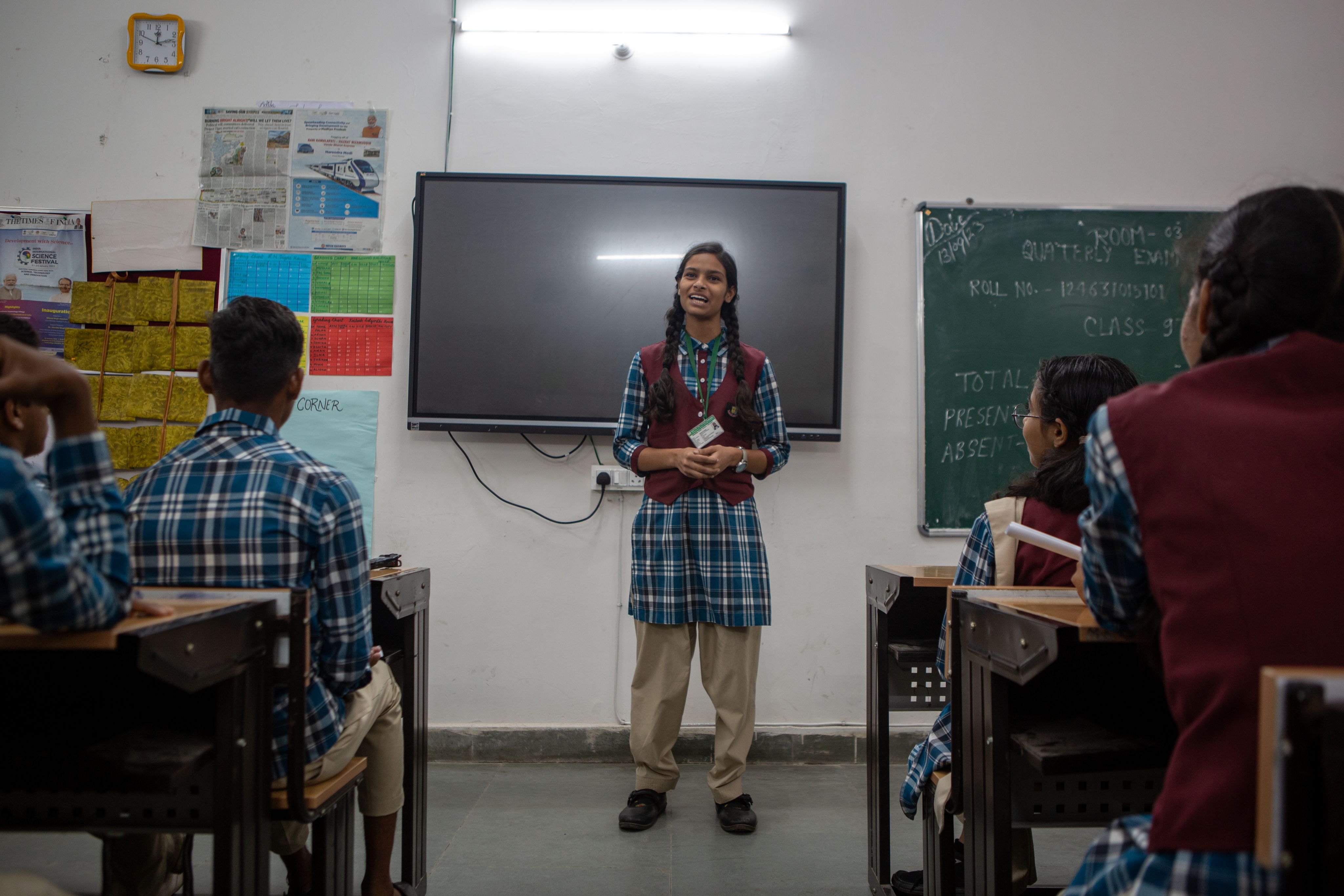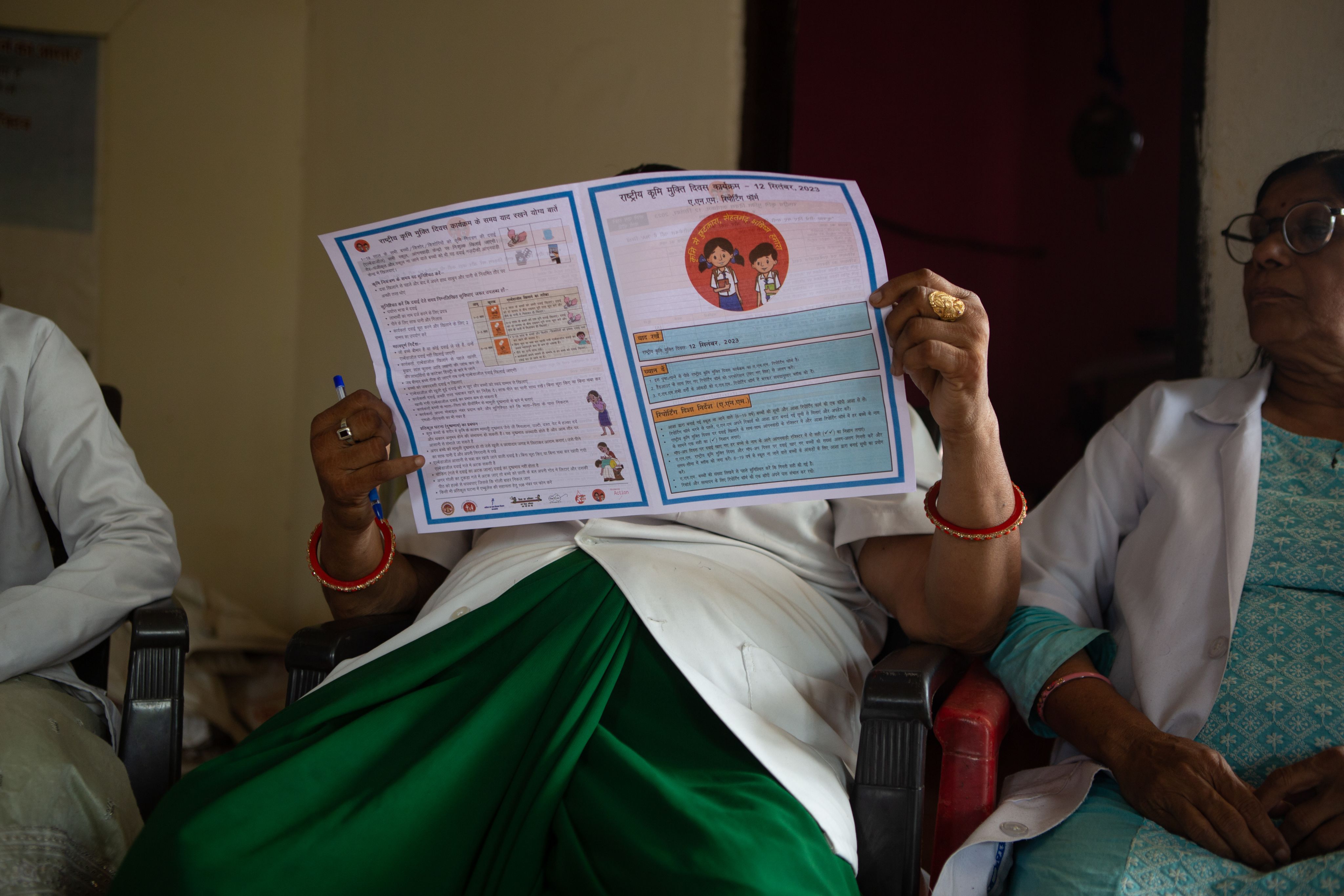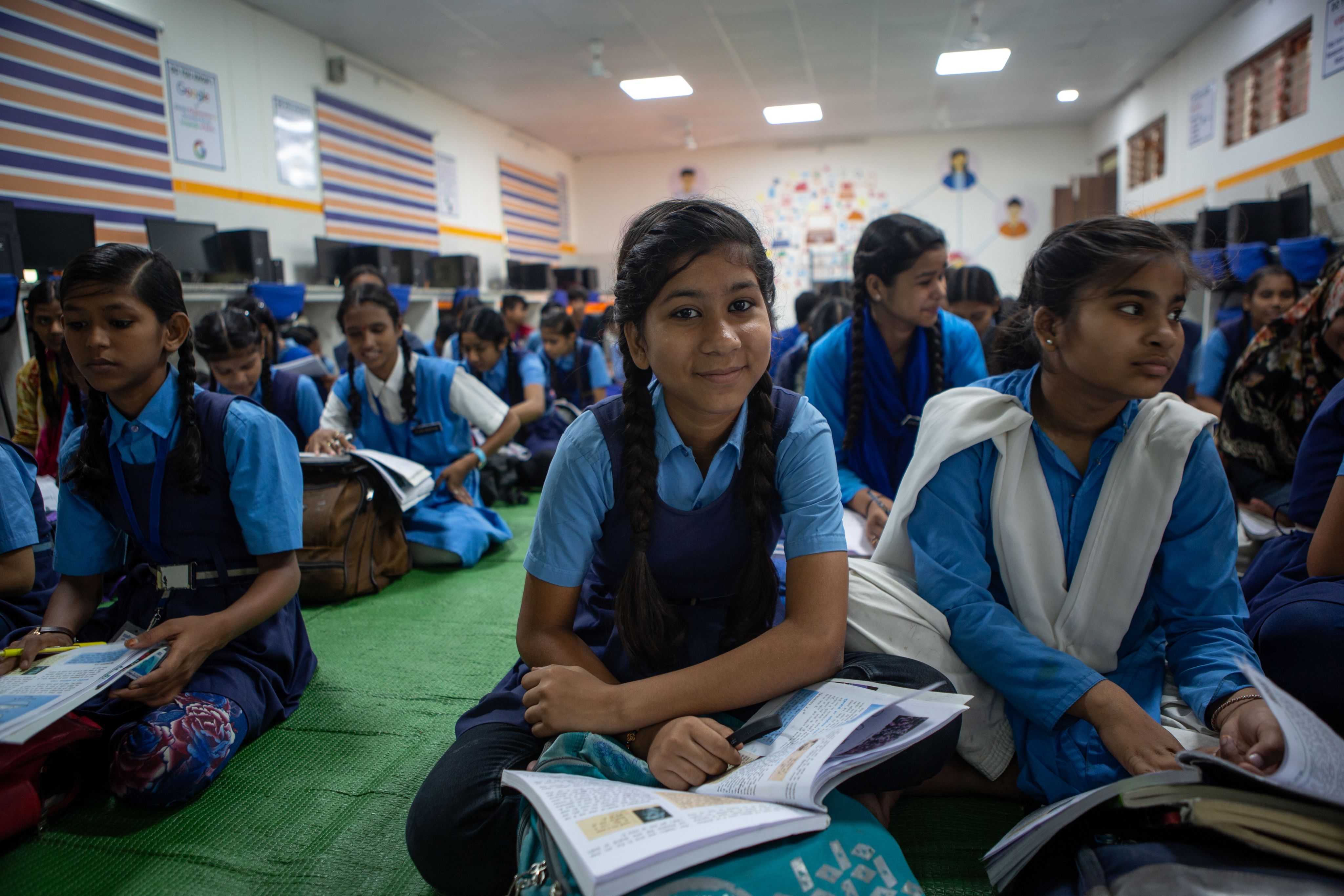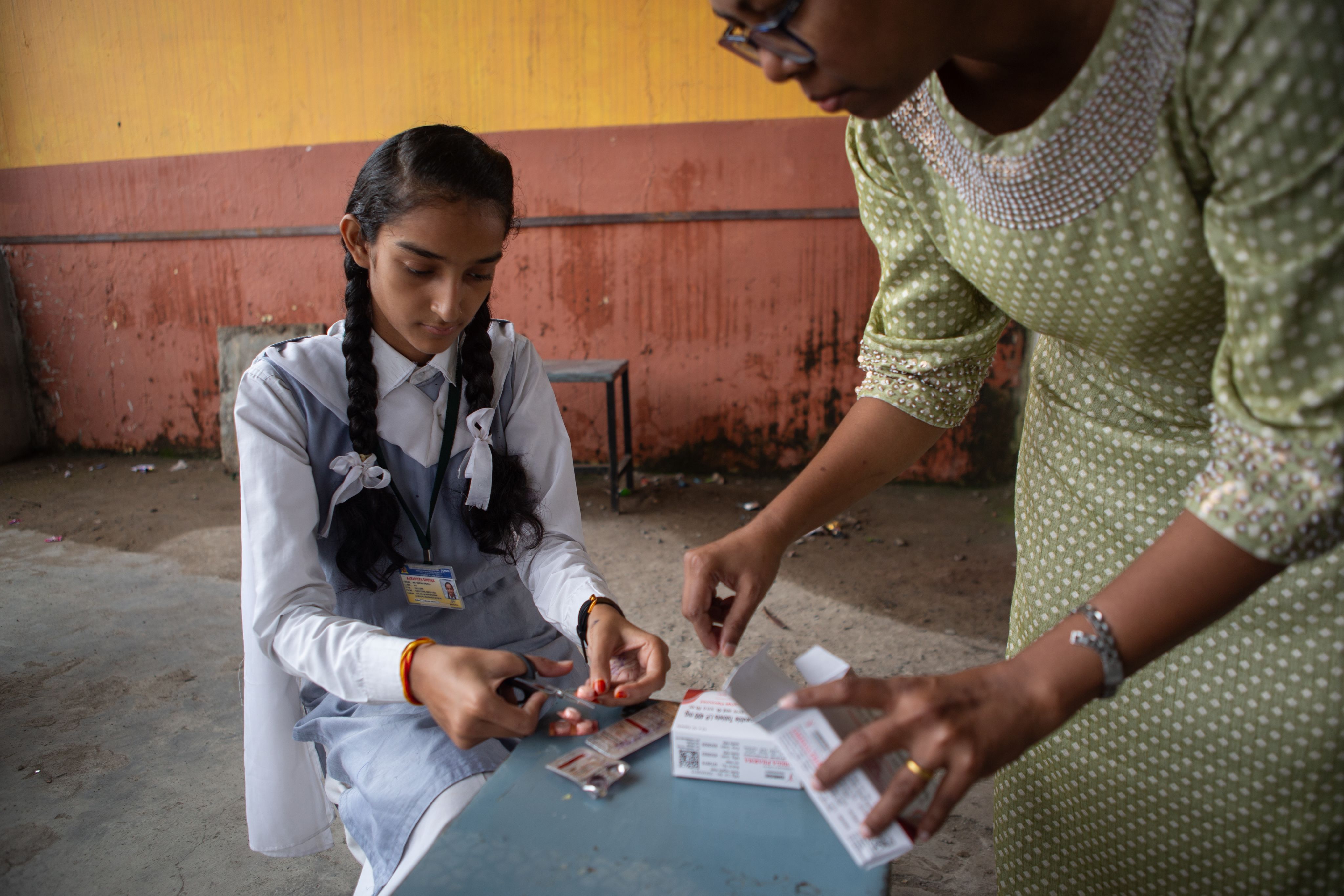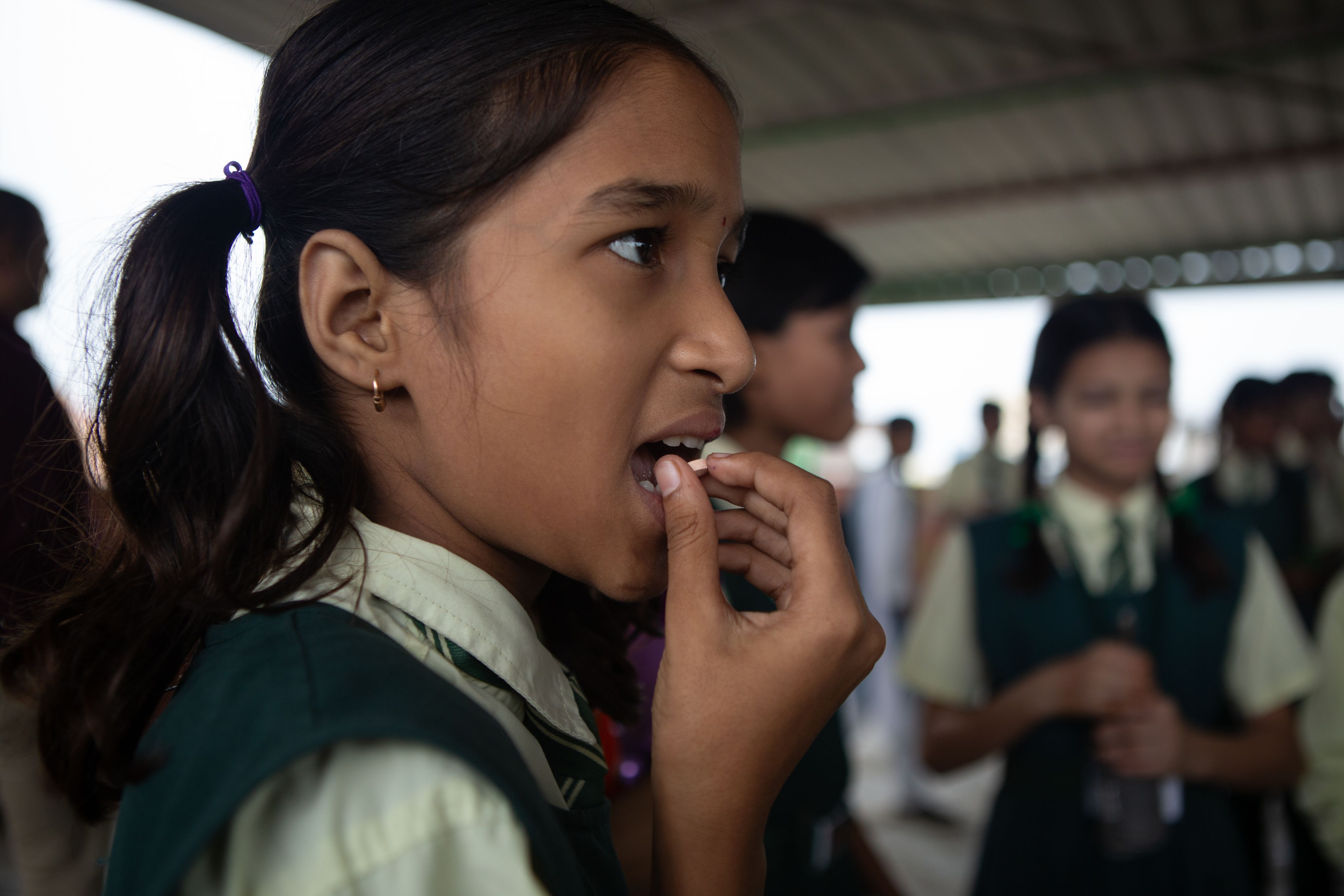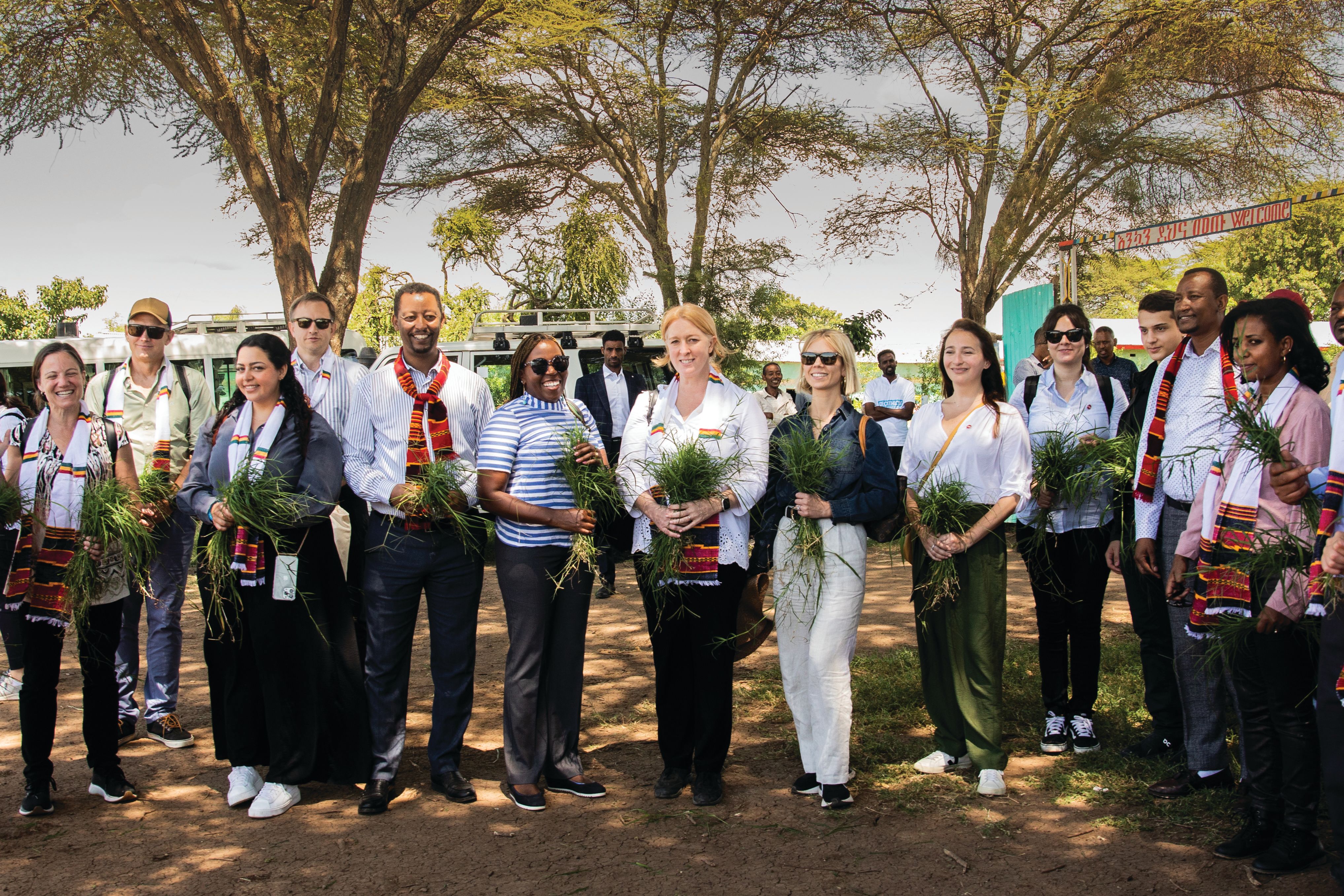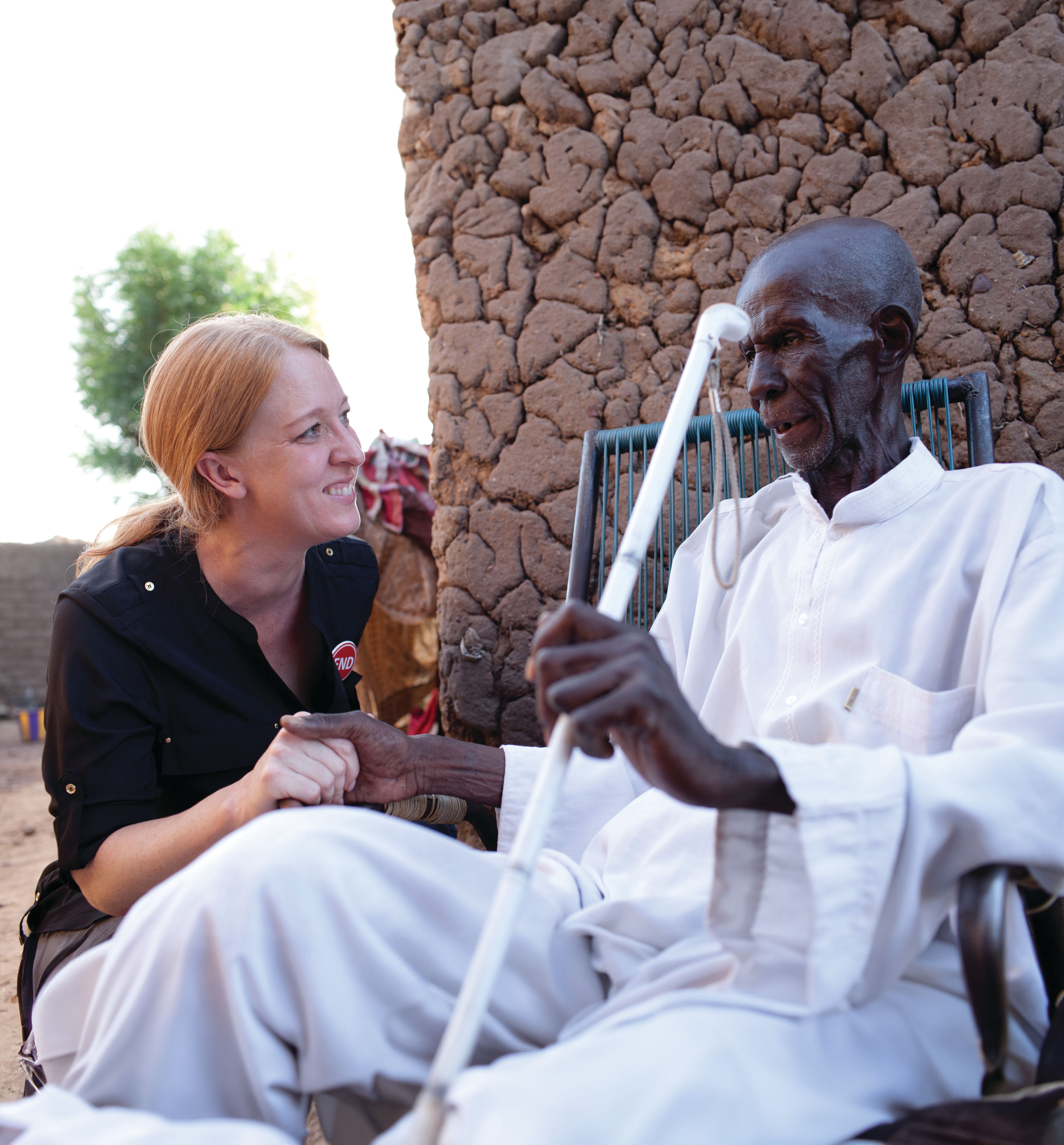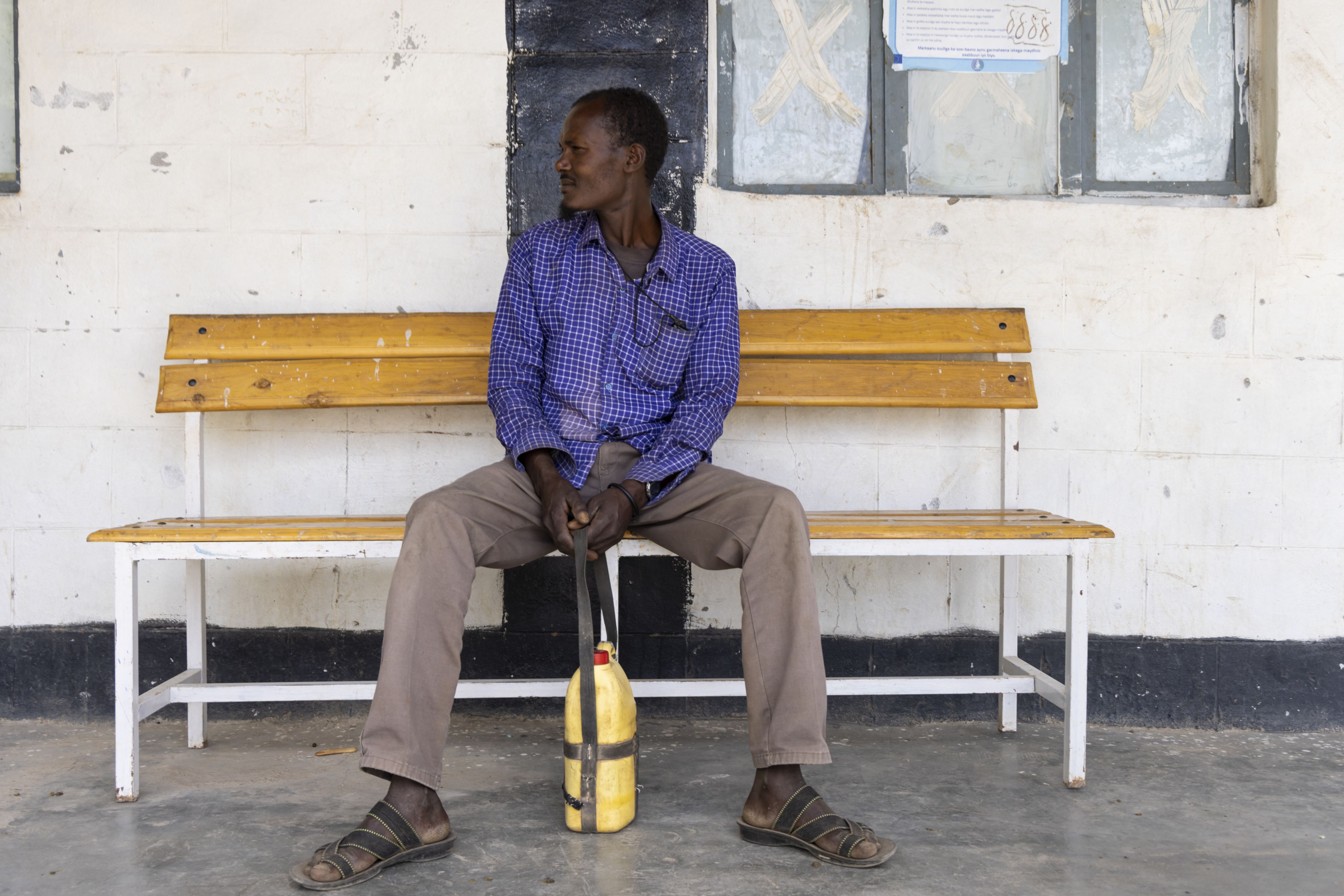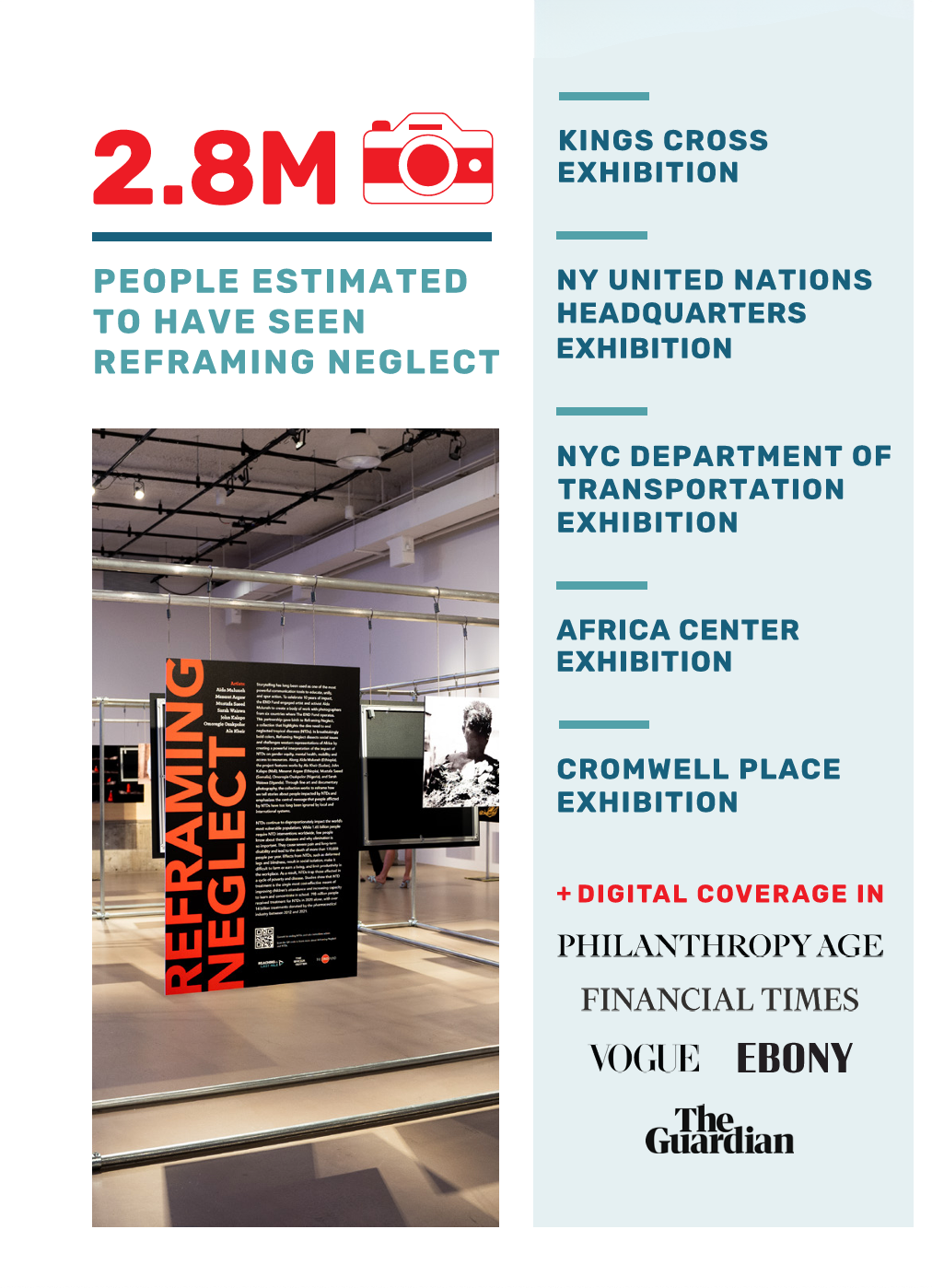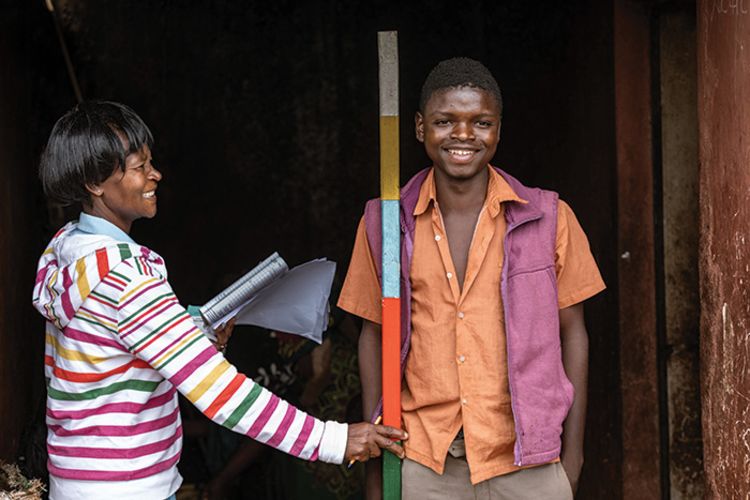THE ROAD TO ELIMINATION
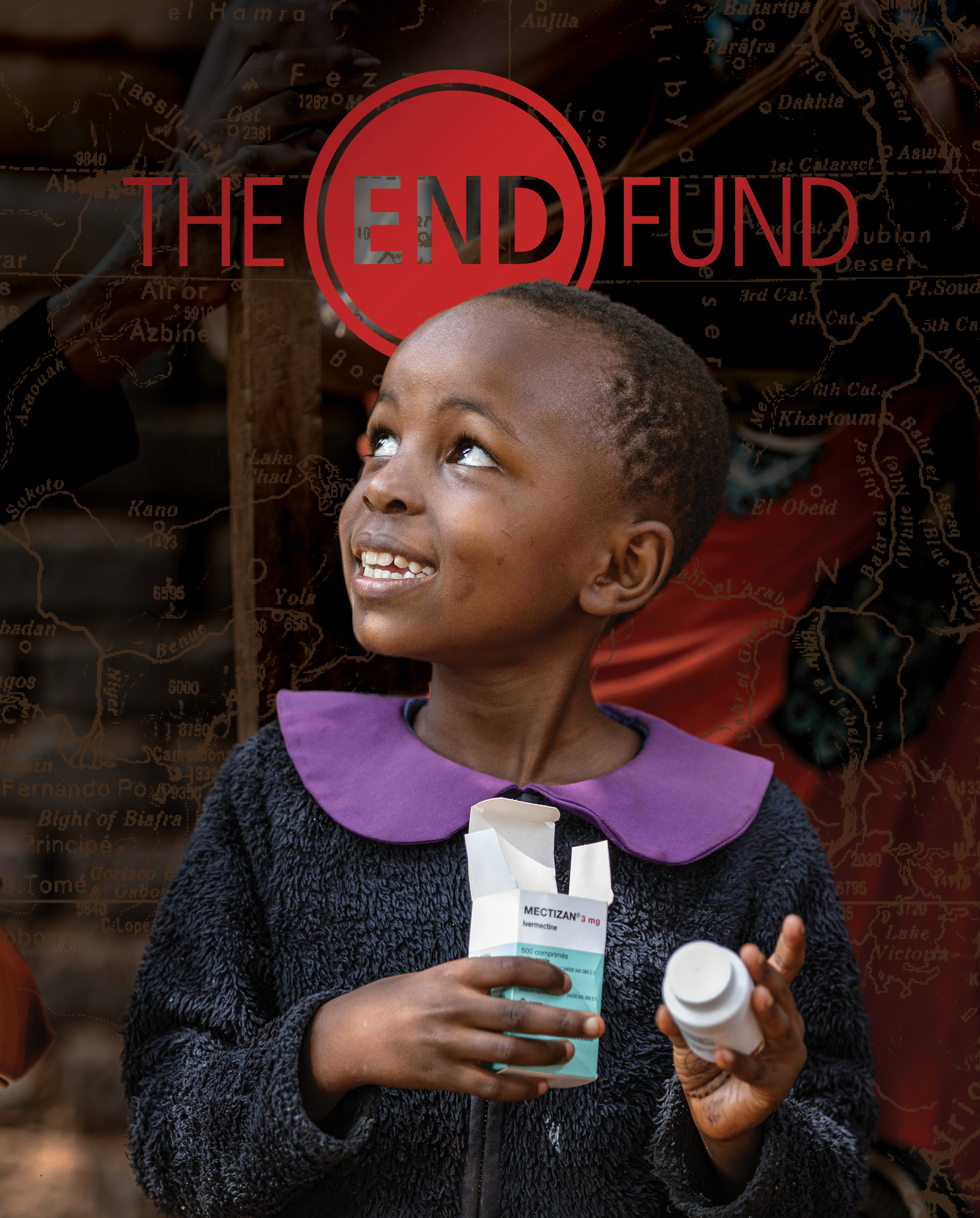

A NOTE FROM OUR CEO AND BOARD CHAIR
Dear Friends and Admired Partners,
2023 was a historic year for the neglected tropical disease (NTD) community, marked by significant strides towards disease elimination milestones and remarkable resource mobilization. With your partnership, we were able to support partners to deliver over 270 million NTD treatments in over thirty countries and provide over forty-six thousand people the surgery they need to prevent blindness and disability. We have never been more energized or optimistic about the future of our work, nor more grateful for the generosity and ambition of the END Fund’s global community.
In addition to the significant achievements of the past year, it has been a time of change and new beginnings. We expressed our gratitude to William (Bill) Campbell for his service as our inaugural Board Chair and celebrated his impactful contributions. Bill guided and supported the full END Fund team and Board of Directors with unwavering commitment for over a decade. We appreciate Bill's decision to assume the role of Board Chair Emeritus and remain deeply involved with the END Fund family.
In August, Tsitsi Masiyiwa accepted the nomination to serve as the next Board Chair of the END Fund. In her term as Board Chair, Tsitsi has committed to prioritizing communities, deepening collaboration with African governments, and continuing progress towards ending NTDs. With her leadership, we are energized and optimistic about furthering our mission.
In the report that follows, you’ll read about the inspiring progress of countries and communities that no longer need treatment after years of NTD mass drug administration programs. This year, Rwanda, the first country that the END Fund supported, integrated NTDs into its national health information system. Senegal will enter its second year of post-treatment surveillance for river blindness elimination. Through the support of our Flagship Fund, nearly fourteen million people in the Democratic Republic of the Congo will no longer need preventative treatment for lymphatic filariasis, and over fifteen million people no longer require treatment for trachoma.
In December, the END Fund community ended the year on a historic high note at the inaugural Health Day of the 2023 United Nations Climate Change Conference (COP28 UAE). During a pledging moment, partners and investors – led by Reaching the Last Mile and the Bill & Melinda Gates Foundation – pledged a total of USD$777 million for NTD programs. Much of this new funding will support the expansion of the Reaching the Last Mile Fund to a continent-wide ambition to end river blindness and lymphatic filariasis across Africa.
Looking ahead, we are inspired by these milestones and believe that we are on track on the road to elimination. We remain passionately focused on our mission to leave no one behind as we continue the scale-up of treatment in affected countries, introduce new technologies, and collaborate closely with governments and local partners.
In 2024, we will say goodbye to Ellen, our inaugural CEO, and celebrate and honor her many years of servant leadership to the END Fund, the NTD community, and our mission to end the needless limitations that NTDs impose on the lives of so many. As the whole Board and team from the END Fund reflect on the progress we saw in 2023 and look forward to the opportunities and challenges that lie ahead, we are filled with optimism and determination to maintain our forward momentum. Our achievements are a testament to the power of collective action and the transformative impact of philanthropy.
With immense gratitude and optimism for the future,
Ellen Agler & Tsitsi Masiyiwa

"This decade, the END Fund's goal is to enable 500 million people to live free from NTDs by 2030. These impactful highlights are a testament to our fund model, strategic partnerships, and commitment to ending the suffering caused by NTDs. To date, the NTD community has ensured that 600 million people no longer require treatment, leading to the elimination of at least one NTD in fifty countries. Through our tailored approach for each country, the END Fund remains dedicated to advancing our commitment to the WHO Roadmap targets. These targets aim to eliminate at least one NTD in 100 countries and reduce by 90% the number of individuals requiring treatment for NTDs by 2030."
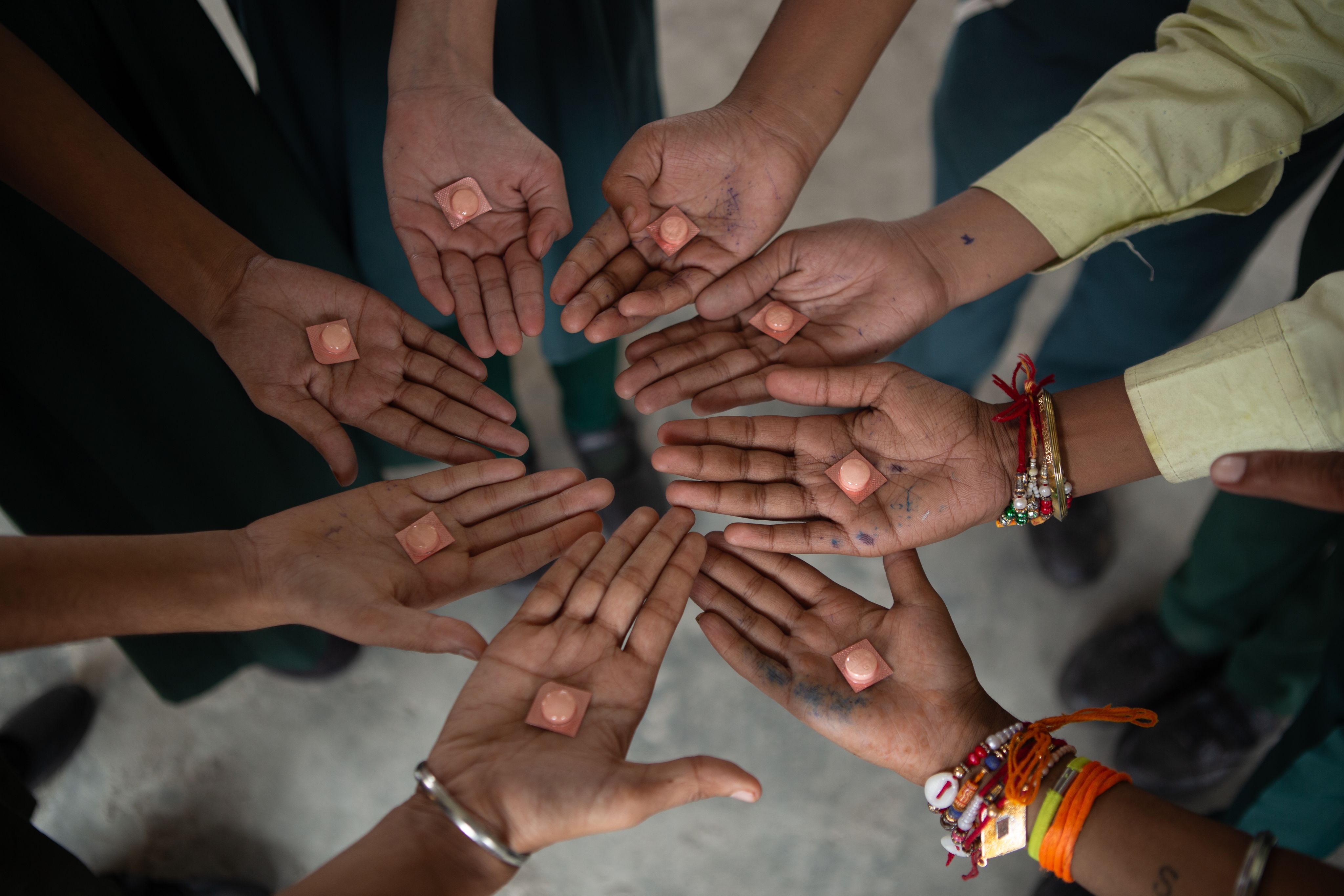

OUR LIFETIME IMPACT
2012-2023
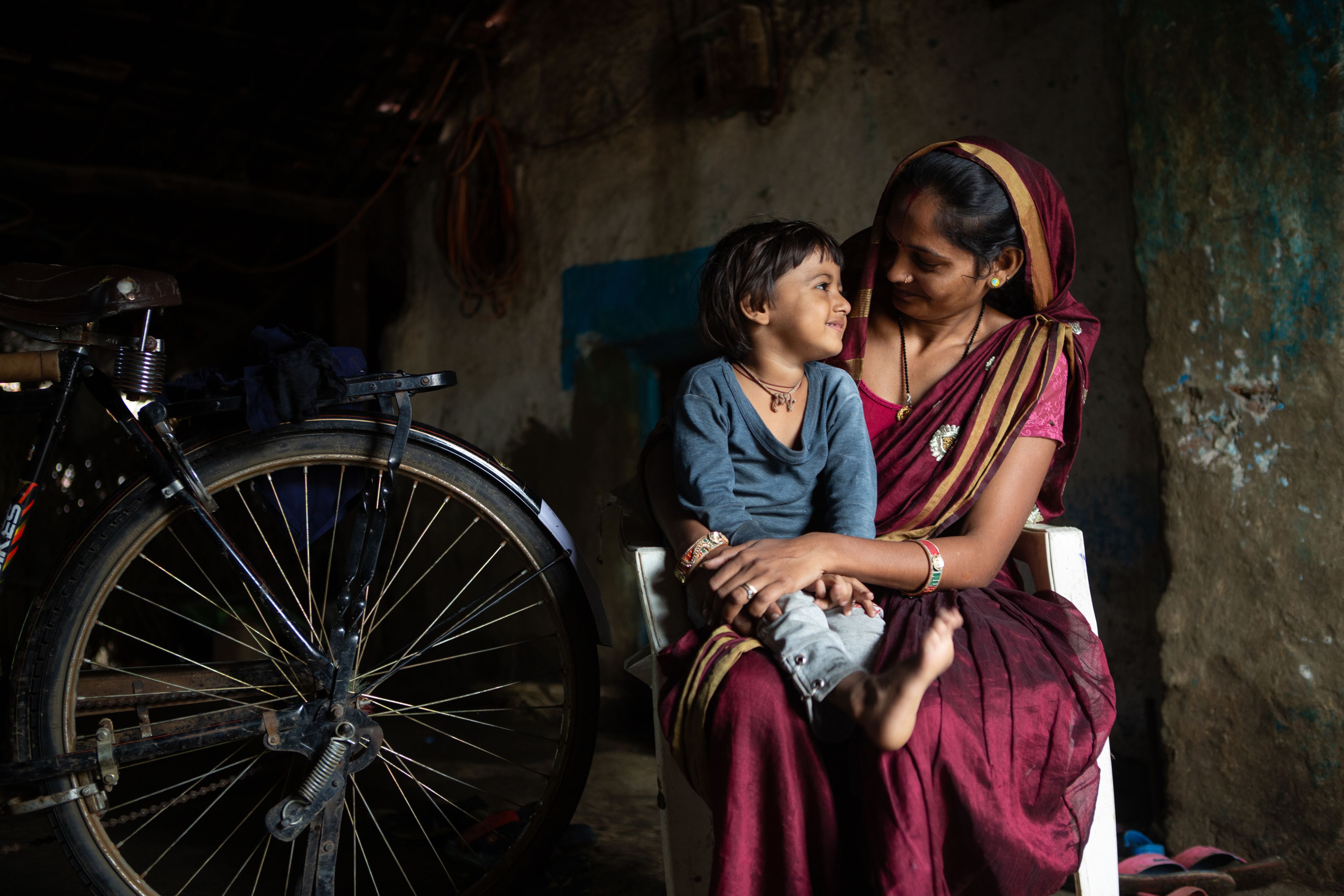
1.86 BILLION TREATMENTS DISTRIBUTED VALUED AT $3.06 BILLION
From 2013-2023

65 program partners

6.4 million health workers trained

181.6 million people treated in 2023

143k surgeries
OUR FUND MODEL
The END Fund manages a portfolio of philanthropic investment funds to control and eliminate the most prevalent neglected tropical diseases. We leverage the power of a global and diverse set of partnerships to achieve results at large scale across thirty-one countries.
MILESTONES FROM 2023 IN THE JOURNEY TO ELIMINATION IN THIS REPORT
Niger becomes the first African country to submit a World Health Organization dossier to verify its elimination of river blindness.
Senegal halts nationwide treatment of river blindness and moves on to its pre-elimination surveillance phase.
INDIA, MADHYA PRADESH approaches a critical step in ending intestinal worms.
RWANDA moves toward eliminating schistosomiasis by 2030.
ETHIOPIA performed 36,586 surgeries in 2023 for blinding trachoma, positioning Ethiopia towards elimination.
NEARING THE END: MADHYA PRADESH APPROACHES A CRITICAL STEP IN ENDING INTESTINAL WORMS
Sakshi is a class ten student at the Chief Minister Rise School in Barkhedi, a village in the central state of Madhya Pradesh, India. She remembers often being sick as a child.
“When I was younger, I was often unwell. I used to ignore it and immediately after school instead ran to play with my friends. Our hands used to get dirty and we would eat food without washing our hands.” Parasitic intestinal worms are common in places where sanitation and hygiene are lacking. These infections sap children’s energy and limit their growth and development. This can hold them back from what they can achieve in school and future work productivity. In India, millions of children are at risk of these infections – worldwide, nearly one billion are at risk. At this scale, the economic and development impacts of intestinal worm infections can be enormous.
When she was in class six, Sakshi and others in her school received a tablet called albendazole to treat intestinal worms. Deworming treatments are incredibly effective, and globally cost as little as USD $0.50 per child per year, and in many places, even less. With these pills, generously donated by GSK, and continued commitment and leadership from the Indian government as well as local institutions, it’s possible to achieve elimination of intestinal worm infections as a public health problem.
On Madhya Pradesh’s annual National Deworming Day in September 2023, more than 600 students at Sakshi's school – over 80% of the student population – received deworming tablets. Pawan Karoch, headmaster for the region’s middle school division, knows firsthand the impact the National Deworming Day programming has had.
“I see visible results in the attentiveness and efficiency of my students as they are now healthier than before and can concentrate on achieving their set goals,” he shared.
With technical assistance from the END Fund’s partner, Evidence Action, Madhya Pradesh’s deworming program has expanded from treating approximately eighteen million children in 2015 to more than 27 million children in 2023. Following this expansion, the rate of children with intestinal worms dropped from over 12% in 2014 to 3.3% in 2019.
Subsequent years of consistent treatment between 2019 and 2023 are likely to result in the area falling below the critical infection rate threshold of 2%, which would mean that the region can safely stop mass drug administration without a risk of resurgence, according to the World Health Organization. The END Fund will continue to work in Madhya Pradesh by supporting impact assessments to verify the region has reached its goals.
“Health is wealth. Children need to be healthy so they will be able to fulfill their goals and aspirations when they finish their schooling properly,” said KD Srivastava, principal of Sakshi’s school. After taking albendazole, Sakshi’s stomachaches disappeared, and she now shares the importance of health and hygiene with her classmates.
Photo credit: Zishaan Latif
Photo credit: Zishaan Latif
Photo credit: Zishaan Latif
Photo credit: Zishaan Latif
Photo credit: Zishaan Latif
Photo credit: Zishaan Latif
Photo credit: Zishaan Latif
Photo credit: Zishaan Latif
Photo credit: Zishaan Latif
Photo credit: Zishaan Latif
10 YEARS OF PROGRESS IN ETHIOPIA
3.6 MILLION PEOPLE IN 50 DISTRICTS no longer require MDA for lymphatic filariasis.
2.6 MILLION PEOPLE IN 29 DISTRICTS no longer require MDA for onchocerciasis.
186 DISTRICTS ACHIEVED THE ELIMINATION THRESHOLD for trachomatous trichiasis (advanced form of trachoma that results in blindness) through surgery.
65% DECREASE in the
prevalence of schistosomiasis infections as a result of MDA and prevention.
REFLECTING ON ETHIOPIA'S PROGRESS TO DEFEAT NTDs
In May 2023, Ethiopia’s Ministry of Health hosted members of the neglected tropical disease community, including partners, donors, and the END Fund’s board members to celebrate ten years of partnership with the END Fund towards NTD elimination goals.
Ethiopia has one of the highest burdens of NTDs in Africa, with over seventy-seven million people at risk. Despite this vast number, Ethiopia has made remarkable strides towards elimination. Diseases such as lymphatic filariasis and river blindness have been reduced as a result of improved diagnosis and sustained mass drug administration. Over 36,000 people received corrective surgery to prevent vision problems resulting from trachoma. Nearly 1.5 million health workers, government staff, and volunteers were trained in MDA, diagnosis and surveillance, community engagement, and prevention strategies.
At the ten-year celebratory event, Ethiopia’s Ministry of Health and its partners reflected on these accomplishments achieved through powerful political will, community engagement, and global partnership. Discussions on sustaining this momentum during the visit led to a historic achievement of direct co-funding of programs with the State of Oromia.
Photo credit: Maheder Haileselassie Tadese
Photo credit: Maheder Haileselassie Tadese
A media round table led by a panel of NTD experts and the END Fund’s Board Chair Emeritus, Bill Campbell, shared messages about the importance of prevention and treatment with attending media journalists and youth health activists.
Attendees also experienced the artistic depiction of Ethiopia’s journey to eliminate NTDs through traditional music, contemporary dance, and poetry. This joyous moment was a chance to reflect on how far Ethiopia has come in its journey to eliminate NTDs, and plan for a hopeful future of continued progress. The END Fund supports Ethiopia’s national NTD elimination program through four investment portfolios which bolster the government’s deworming efforts and strategic initiatives to combat trachoma, river blindness, lymphatic filariasis, and visceral leishmaniasis.
CELEBRATING OUR INAUGURAL CEO
Over a Decade of Servant Leadership in the Movement against NTDs
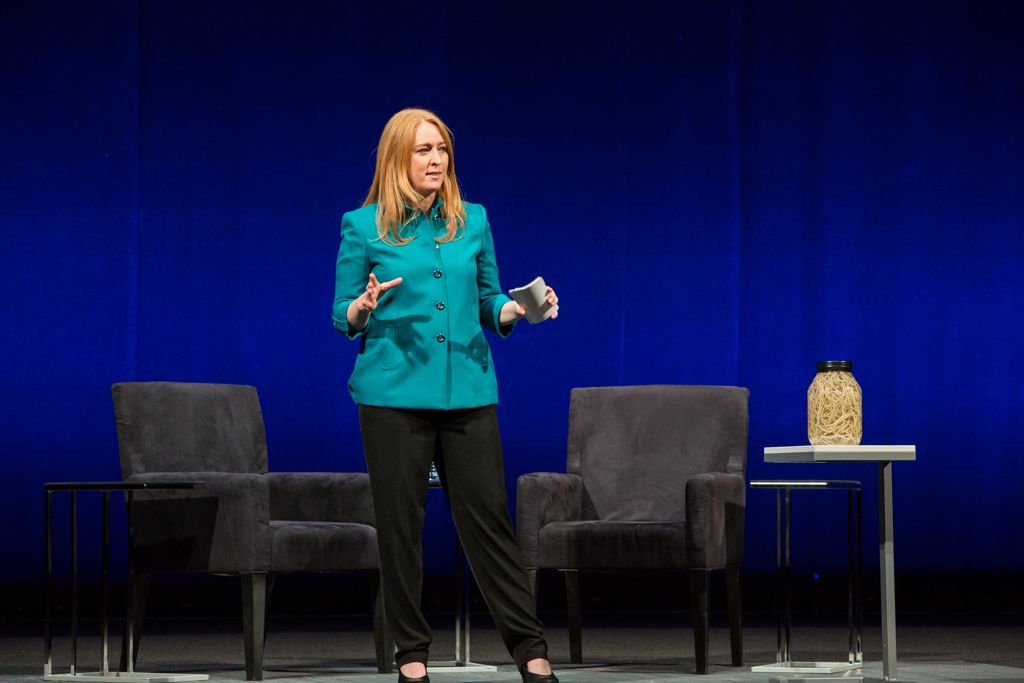
The END Fund’s global community is moved to celebrate Ellen Agler’s achievements as the Founding Chief Executive Officer of the END Fund. As she departs the organization in 2024, we thank her for her partnership and friendship, and for the impact her work has had on the lives of hundreds of millions of people since she joined the movement against neglected tropical diseases.
Ellen's journey with the END Fund began in 2012, at a crucial moment in the movement to end NTDs with the signing of The London Declaration on NTDs, a commitment from partners to control, eliminate, or eradicate ten diseases by 2020 and improve the lives of over one billion people. With over two decades of professional experience in global health, Ellen brought technical and operational knowledge, a deep-rooted passion, and an entrepreneurial spirit to her role as the first employee of the END Fund. Charged with building and nurturing a diverse global community of Board members, staff, investors, and program partners, in her twelve years Ellen has grown the END Fund so that it now operates in thirty-one countries.
Under Ellen's inclusive and warm leadership, the END Fund's collaborative philanthropy model has brought together over 7,000 donors from 68 countries, mobilizing nearly USD$500 million which has enabled the provision of over 1.8 billion NTD treatments, 143,519 life-changing surgeries, and the training of over 6 million health workers. In her time with the organization, the END Fund has formed fifty-three powerful programmatic partnerships, and multiple countries have reached disease control and elimination goals. Ellen's advocacy has played a crucial role in ensuring that millions of people globally will no longer require treatment for NTDs.
As Ellen embarks on the next chapter of her professional journey, the END Fund global community expresses our gratitude for her leadership, partnership, and passionate efforts on behalf of the movement to end NTDs. We are deeply committed to carry forward the END Fund’s work inspired by your tireless example. Thank you, Ellen!
Photo credit: DJT
Photo credit: DJT
WITH DROUGHT COMES A DEADLY PARASITE: THE FLAGSHIP FUND SUPPORTS ETHIOPIA TO CONTAIN AN OUTBREAK OF VISCERAL LEISHMANIASIS
Amidst six continuous years of drought, a hospital in Ethiopia’s South Omo Valley was put to the test by a deadly parasitic disease.
“These are actual human beings
that are dying, actual families that
have been affected by this disease,”
12,705 SUSPECTED VL CASES
were screened & tested, and a total 7,279 patients were treated in 2023. The END Fund supported VL elimination in Ethiopia, Kenya, South Sudan, Sudan, and Uganda.
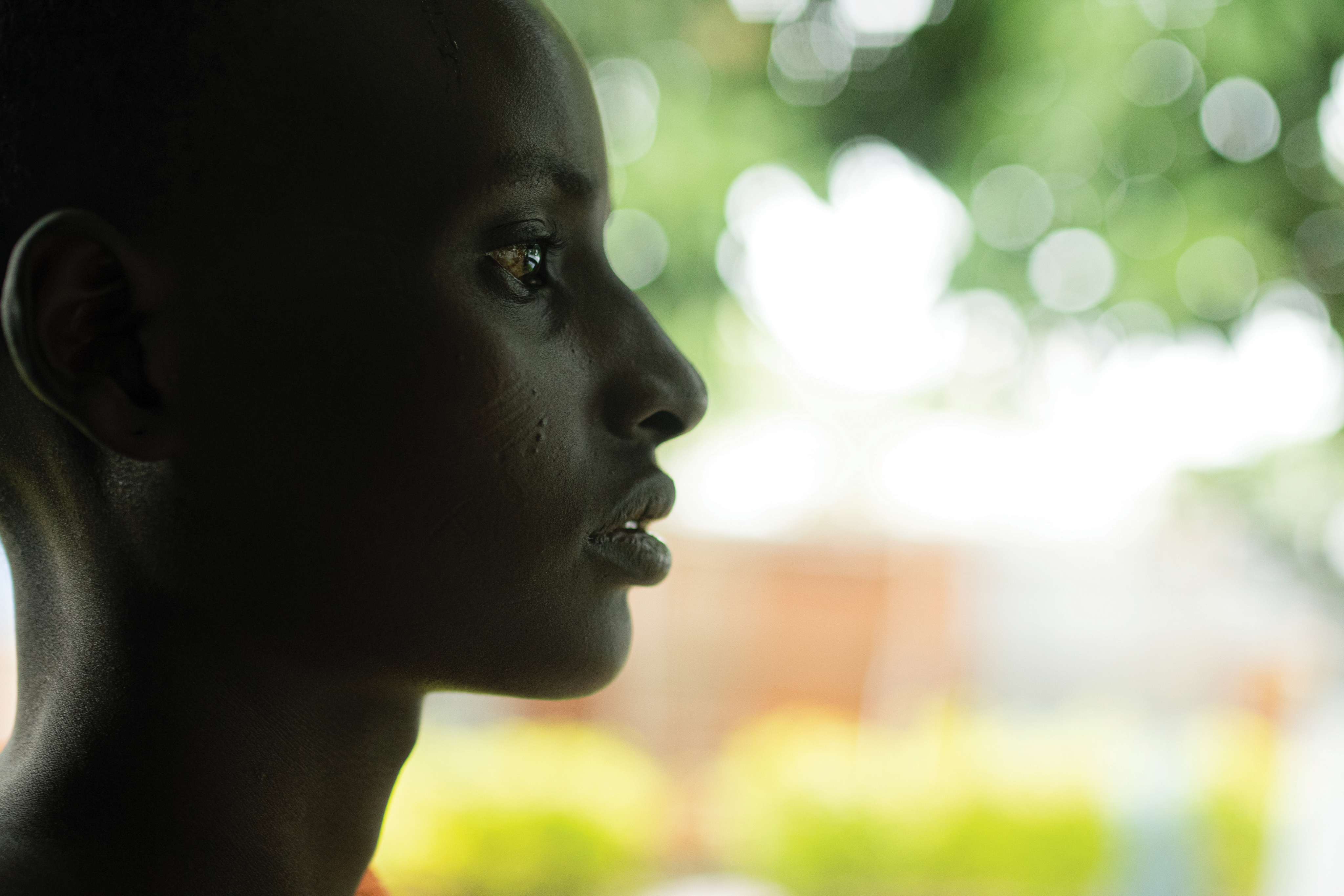
EYES CLEAR AND FREE OF PAIN:
READ ABOUT ETHIOPIA’S JOURNEY TO BLINDING TRACHOMA ELIMINATION
The sun shone high in the sky above the sorghum fields of the Somali region of Ethiopia. Feysel Abdullahi Samatar’s hands made quick work of harvesting his crop. But his eyes watered painfully in the sun’s light, a result of the disease that had followed him for most of his life: trachoma, a bacterial infection that can lead to blindness.
“My eyes have always been watery since I was a young child, but I never tried the treatment as I couldn't afford it,” said Feysel. “My eyes itch and hurt a lot. Being in the sun makes it difficult for me to work on the farm.”
Persistent infection with trachoma causes scarring of the eyelids, which twists the eyelashes inward to scrape painfully against the cornea. Eventually, this destroys a person’s eyesight. The condition is known as trachomatous trichiasis, or TT.
Photo credit: Meseret Argaw
Photo credit: Meseret Argaw
SUSTAINING THE GAINS: RWANDA’S PROGRESS TOWARDS ELIMINATING SCHISTOSOMIASIS BY 2030
After more than ten years of support from the END Fund, Rwanda has substantially and sustainably reduced its dependence on donor funds because of its comprehensive commitment to schistosomiasis elimination.
Since 2019, the Rwandan government has financed 100% of the operational costs related to mass drug administration delivery, which demonstrates the government’s leadership and has provided a beacon of sustainability for other countries to follow.
In 2020, the Deworming Innovation Fund supported Rwanda to conduct a precise disease survey to guide its new ambitious goal of interrupting the transmission of schistosomiasis. As a result, schistosomiasis has reached a threshold of elimination as a public health problem, which means prevalence has been reduced to just 1% of infections in 97% of surveyed villages. This outcome follows years of effective treatment campaigns that were the result of Rwanda's steadfast commitment to elimination.


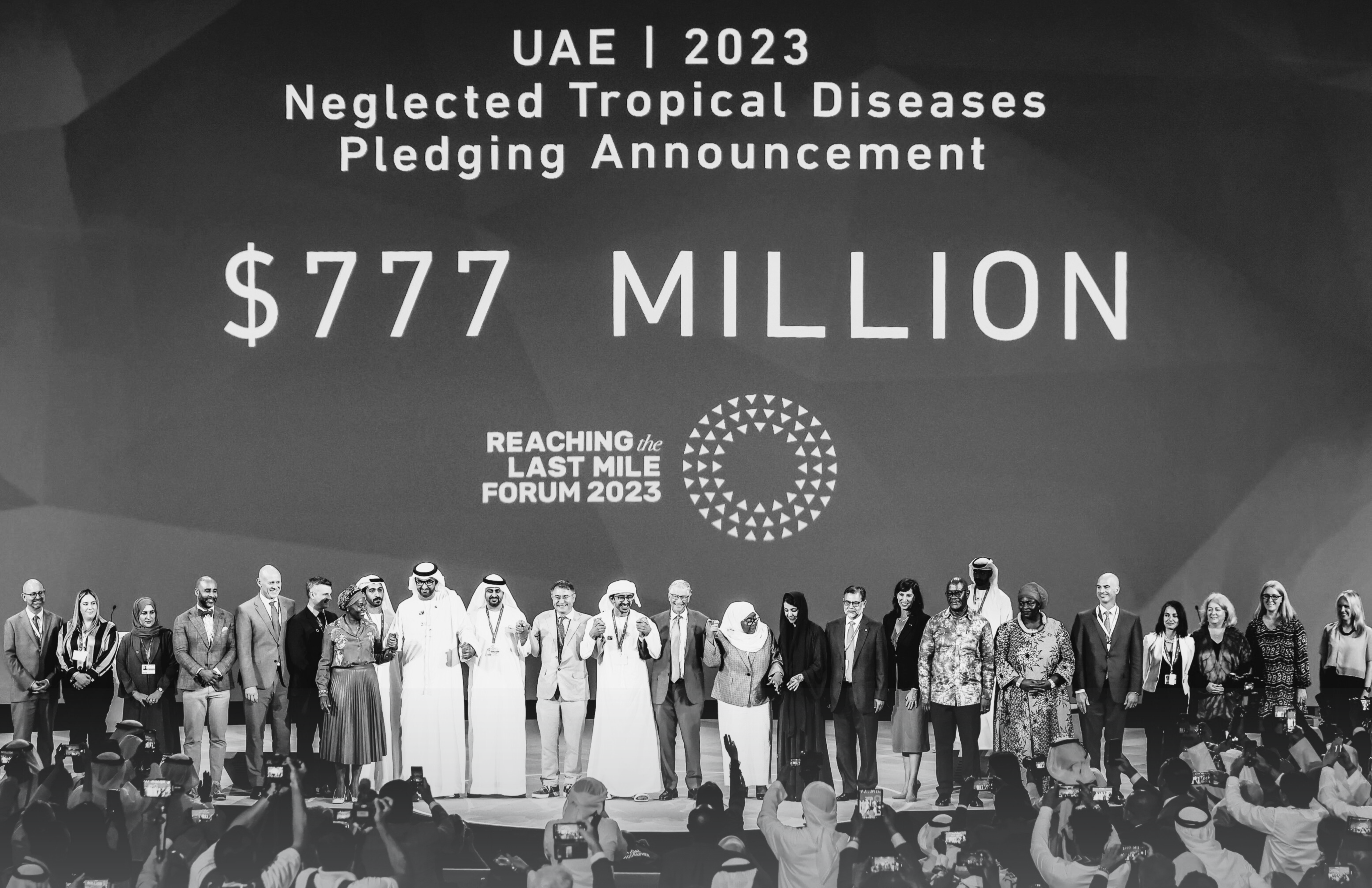
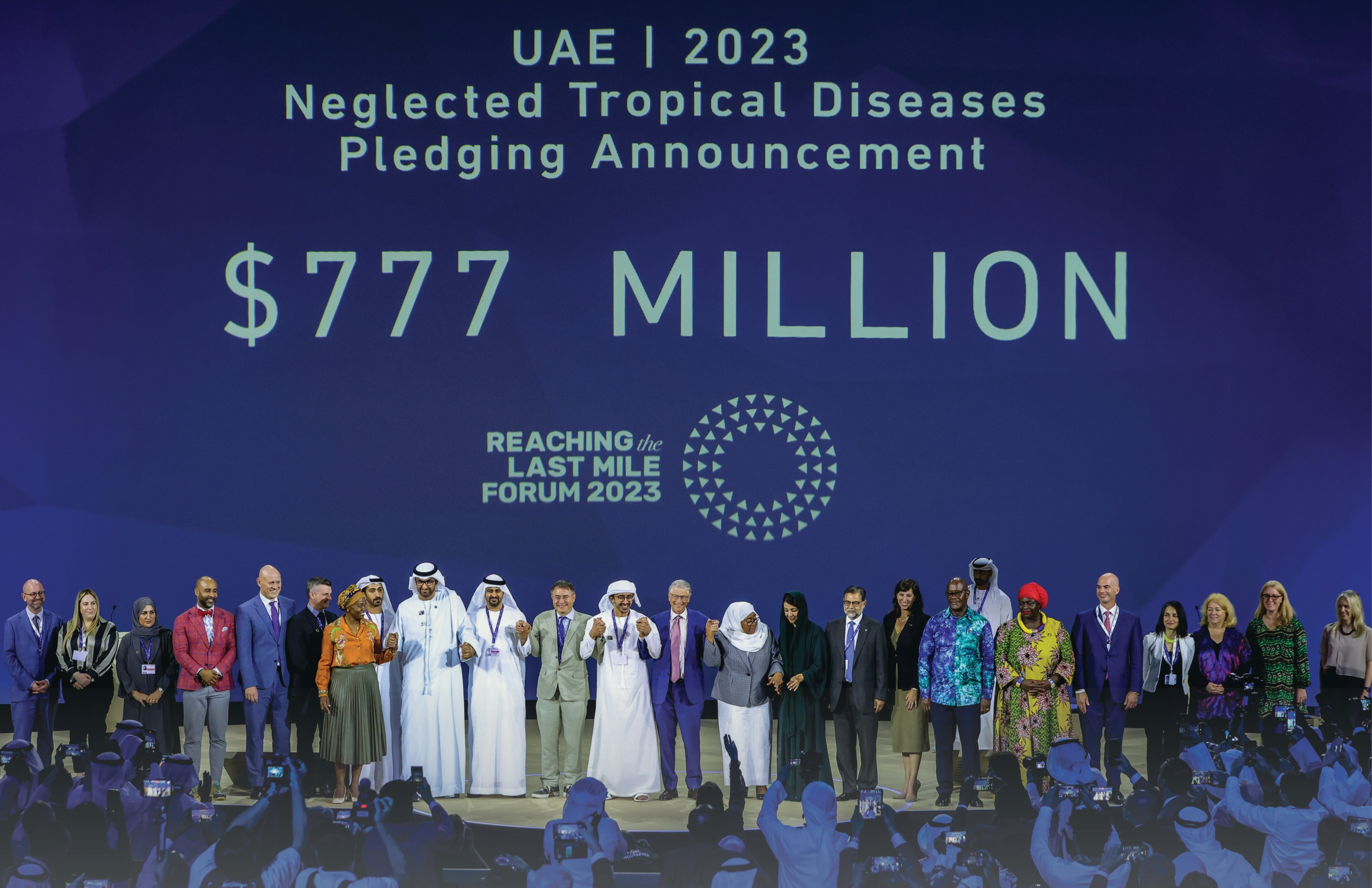
REACHING THE LAST MILE FUND EXPANSION: FAST-TRACKING PROGRESS TOWARD 2030 NTD TARGETS
In December 2023, at the Reaching the Last Mile Forum, held on the inaugural Health Day of the United Nations Climate Change Conference (COP28) in Dubai, a series of historic commitments were announced which included expanding the Reaching the Last Mile Fund (RLMF) to support neglected tropical disease elimination at a continent level.
The fund, which was established in 2017 by His Highness Sheikh Mohammed bin Zayed Al Nahyan, President of the UAE, and the Bill & Melinda Gates Foundation, has emerged as a best in-class program to achieve elimination of NTDs. RLMF has made a remarkable impact in its targeted geographies, enabling its founders to strive for the bolder vision of an Africa free of river blindness and lymphatic filariasis (LF).
The RLMF model prioritizes country leadership in disease elimination and responds directly to countries’ evolving scientific, policy, and program delivery needs. Through this strategic investment model, the RLMF supported Niger in becoming the first African country to submit a World Health Organization (WHO) dossier to verify its elimination of river blindness, and Senegal to halt its nationwide treatment and move on to its post treatment surveillance phase.
Building upon this foundation of success, the RLMF added four new countries to its portfolio in early 2023: Guinea Bissau, Rwanda, Ghana, and Malawi. To date, the fund has supported countries to deliver over 113.8 million treatments for river blindness and LF across eleven countries and has facilitated life altering surgeries for 2,435 patients with LF. These accomplishments underscore the profound impact of country-led approaches to disease elimination.
Then, in December 2023, the UAE Presidential Court’s Reaching the Last Mile and the Bill & Melinda Gates Foundation announced the expansion of RLMF to a continent-wide elimination program for river blindness and LF in Africa. Supported by a newly expanded coalition of countries, funders, and implementing partners, RLMF’s footprint will grow from eleven to thirty-nine countries.
Partners and countries pledged resources to expand RLMF’s footprint from eleven to thirty-nine countries. “These pledges represent an important milestone in our journey towards ending NTDs,” said Tsitsi Masiyiwa, Board Chair of the END Fund, at the Reaching the Last Mile Forum.
“An Africa free from river blindness and LF will restore dignity and social inclusion to millions of people, while ensuring that others don’t experience needless pain, stigma, and suffering.” Today, we are halfway to the WHO's target of 100 countries eliminating at least one NTD by 2030. The expansion of the RLMF is a pivotal step towards meeting this target, holding the promise of improving the health of millions of people and increasing growth and prosperity throughout the African continent.
ART AS A CATALYST FOR CHANGE: REFRAMING NEGLECT
Photo credit: Shawn Bruce, featuring photography by Sarah Waiswa
Photo credit: Shawn Bruce, featuring photography by Sarah Waiswa
Photo credit: Shawn Bruce, featuring photography by Aïda Muluneh
Photo credit: Shawn Bruce, featuring photography by Aïda Muluneh
The Reframing Neglect series, supported by Reaching the Last Mile, serves as a tool for advocacy, using art to dissect the impact of NTDs on gender equity, mental health, and mobility, and to challenge western representations of Africa.
The photographers, representing seven African countries with high NTD burdens, have captured the international art world through their work. In breathtakingly bold colors, the collection uses striking compositions and compelling narratives to dissect the disproportionate and marginalizing impact of NTDs. Alongside Aïda Muluneh (Ethiopia), the project features works by Ala Kheir (Sudan), John Kalapo (Mali), Meseret Argaw (Ethiopia), Mustafa Saeed (Somalia), Omoregie Osakpolor (Nigeria), and Sarah Waiswa (Uganda).
As a vehicle to inspire awareness and shed light on the individuals and communities affected by NTDs, Reframing Neglect has begun to spark global conversations about the need to end these dangerous, yet preventable and treatable diseases. Since its public launch in 2022, the collection has reached an estimated 2.8 million people across North America, Europe, and East Africa.
Through prominent exhibitions in New York and London, including a notable showcase at the United Nations Headquarters during World NTD Day 2023 topped off with a powerful speech by UN Deputy Secretary-General, Amina Mohammed, the collection continues to reach new audiences and demand action. Reframing Neglect has opened the door to powerful new partnerships, including the Africa Center (New York, USA), Photo Vogue (Milan, Italy), The New York City Department of Transportation (New York, USA), as well as the United Nations where the collection has twice been exhibited.
Reframing Neglect serves as more than just art - it is a catalyst for change, amplifying the voices of those who have long been neglected by local and international systems. By shining a light and reframing the narrative surrounding NTDs, this series empowers individuals and communities to demand the attention and resources necessary to combat these often overlooked diseases.
COUNTRY PORTFOLIO 2023
FINANCIAL SUMMARY 2023
Photo credit: Kondwani Jere
Photo credit: Kondwani Jere
ANCHOR DONOR SUPPORT
Without the catalytic contributions of our investors and programmatic partners, the neglected tropical disease community would not have been able to advance as far down the road to elimination as we have done, nor be so optimistic about our opportunities to reach the finish line. The END Fund is incredibly grateful to have received gifts from more than 7,000 investors to date, helping to support the life-changing work of our incredible local and international programmatic partners. In 2023 alone, we received 3,142 contributions from investors worldwide, from Argentina to Zimbabwe. Each of these generous gifts inspires hope that those we serve, and all future generations, will soon need not worry about NTDs preventing them or their family from attending and thriving in school, from being able to provide for their loved ones and, ultimately, from fulfilling their hopes and dreams.
To every one of our supporters, thank you for investing in a healthier and more prosperous future for all, free from these devastating diseases. We look forward to continuing to tread the path to elimination in partnership with you all.
For a list of our major investors and partners over the life of the END Fund, visit end.org/partners


